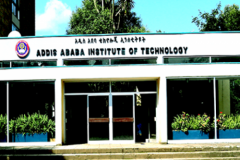Addis Ababa Institute of Technology
- Institution: Addis Ababa Institute of Technology (Addis Ababa University)
- Department: Center of Biomedical Engineering
- Location: Addis Ababa (Ethiopia)
- Website: http://aait.edu.et, http://aau.edu.et
- Contact person: Dawit Assefa Haile (PhD)
Brief description
The Addis Ababa Institute of Technology aspires to be the top Engineering and Applied Science Higher Education institutions in Africa in the coming years working with the clear vision of educating students as leading Engineers and Entrepreneurs, pursuing Research and Entrepreneurship that nurtures innovation powering the economic and social transformation, serving nations and nationalities through outreach for better life by advancing scientific and technological literacy as well as setting the best IoT model to contribute for accelerating economic development. The institute is organized into five different schools: School of Civil & Environmental Engineering, School of Electrical & Computer Engineering, School of Mechanical & Industrial Engineering, School of Chemical & Bioengineering, and School of Multidisciplinary Engineering (composed of four Centers under it: Center of Biomedical Engineering, Center of Railway Engineering, Center of Energy and Center of Materials Engineering).
The Center of Biomedical Engineering was established in 2012 and runs both undergraduate and graduate programs. The Center focus areas for research include Biomedical Instrumentation, Biomedical Rehabilitation, and Biomedical Computing. The Center is currently on the process to launch new undergraduate (in-service) and graduate programs in selected fields. The Center also runs different collaborative capacity development projects including the NUFFIC/NICHE Project (with University of Oulu (Finland), Tampere University of Technology (Finland), University of Cape-town (South Africa), and PHILIPS health care as consortium members), the American International Health Alliance Twinning Center Project, and the American Public Health Laboratories Project. Active communication exists with other academic institutions including University of Michigan, University of Wisconsin, University of Boston, Kenyatta University, and University of Cape-town to enter a formal collaboration agreement and this clearly shows the vast opportunity available for intensive engagement in teaching and research activities. It also actively collaborates with and supports the Ethiopian Association of Biomedical Engineers and the Biomedical Engineering Students Association.


